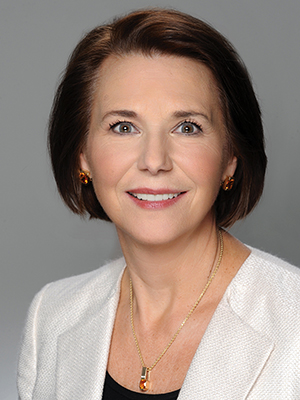 Linda P. Erickson
Linda P. EricksonLinda P. Erickson, CFP®, is the president of Erickson Advisors and a registered principal offering securities through Cetera Advisor Networks, LLC, 336-274-9403 lindae@ericksonadvisors.net.
At some point in every big household project, I say to myself –“Why didn’t I hire someone to do this?”
As I get older, with maybe a little less energy to throw at the task at hand, I appreciate someone else’s technical skill to handle the job faster, maybe even better. Above all, I have come to appreciate the value of professional and technical service and expertise.
People who study these things tell us that as we transition into retirement we will likely consolidate our financial advisors, brokers and agents into one trusted advisor. Even those who, like my household project history, have managed their wealth accumulation on their own, will likely seek out a trusted financial advisor on whom they can rely.
OK, so what is the benefit of a single, trusted advisor?
- Administratively, everything is one place – WOW!
- Reduced worry over conflicting advice or parts of the puzzle.
- Service is usually handled with one call. The trusted advisor hears the question or concern and, with the aid of a trusted staff person, sets a resolution in motion.
- Costs might be reduced. Better pricing is often achieved by aggregating all your accounts to reach a threshold of lower fees that come with higher account balances.
Many accumulating investors are fearful of putting everything with one advisor. Perhaps it is an anxiety over perceived loss of control or just losing an opportunity to pick from multiple strategies. If the experts are right, however, and you arrive at a decision to change to “one trusted advisor,” you face a challenge of critical importance to your mental health and financial security.
How do you choose this one trusted advisor? As with any big decision, you must gather as much information on the subject as possible, and that means doing some homework. Here’s your list:
First – Ask people, whom you trust and admire, who advises them. Ask that same question of people who seem to live as you want to live.
Second – Interview several different kinds of advisors – fee based, commission based, fee only, fee and commission. If it is not obvious what the compensation structure is, ask. Interview the prospective advisor, and his or her staff, in depth. This relationship will be like a marriage; it is very personal, and it should last a long time. Do a ‘gut check.’ Does it feel like a good fit?
Third – Get a proposal in writing. Ask questions about terms you don’t understand or with which you may be unfamiliar.
Fourth – Get references, and make sure the references are people like you – and call them.
Take the time to do this right. It will be worth it.

